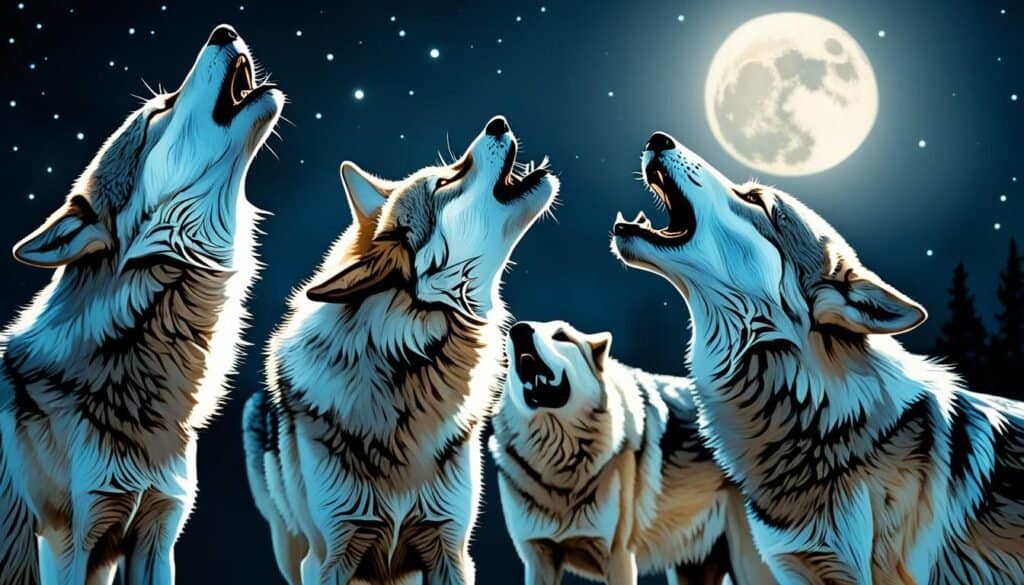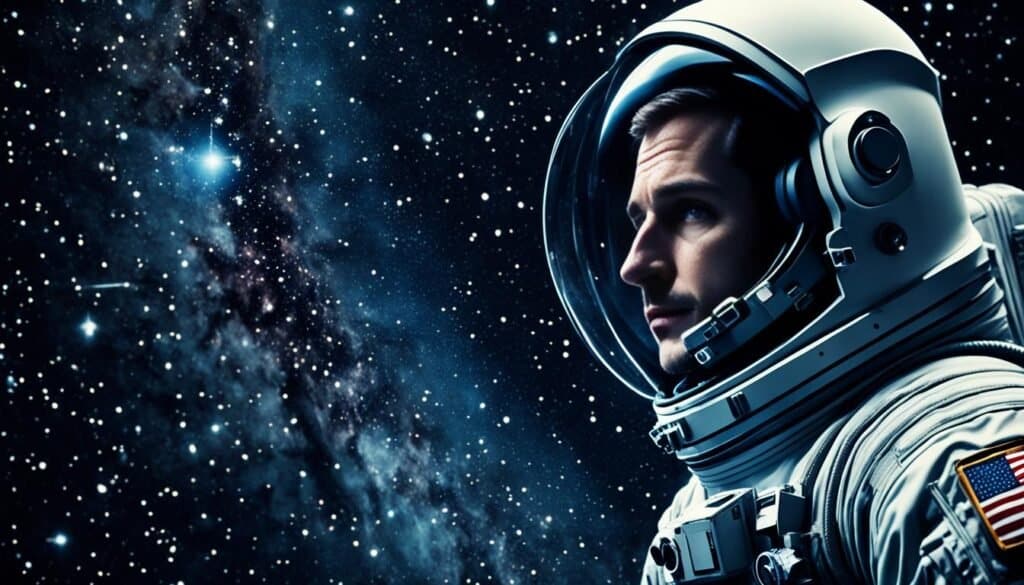Have you ever thought deeply about life? Wondered about the questions that have puzzled people for centuries? This article looks at some big, unanswered questions. We explore topics that challenge how we see life, consciousness, and what’s real. Get ready to dive deep into thinking about things we may never fully understand.
Key Takeaways:
- 1. Existential questions are deep inquiries that push us to think about existence.
- 2. Philosophers have debated the meaning of life, leading to many viewpoints.
- 3. Different beliefs and philosophies talk about what might happen after we die.
- 4. The argument of free will versus determinism looks at our control over actions.
- 5. Consciousness is a deep topic, questioning if it’s unique to humans.
- 6. Reality asks us to think if what we see is really how things are, or is it something else?
Is There an Objective Meaning to Life?
Philosophers have always pondered if life has a real purpose. We humans are naturally curious and want to know the meaning of our existence. This search for truth has led to many debates in philosophy.
There are many views on life’s meaning. Some say it’s up to you to give life purpose, based on what you believe and have experienced. They see it as a personal journey.
However, others believe life does have a true purpose. They say we can find this purpose in spiritual or religious beliefs. Ideas like these aim to place life in a big, meaningful context.
“The meaning of life is not simply a quest for personal happiness, but rather a search for the ultimate truth, a spiritual connection with something greater than ourselves.” – Albert Einstein
These different beliefs keep conversations alive about what it all means. We keep trying to understand if life has a set purpose or if we get to choose what it means to us individually.
Exploring life’s big questions, we find endless perspectives. Philosophy and religion offer different but deep views. It all encourages us to think about where we fit in the grand scheme of things.
The Quest for Meaning: A Biblical Perspective
In faith, meaning takes on special meaning. Many look to texts like the Bible for insight. Its stories and teachings offer wisdom and explain life’s purposes.
The Bible’s message is clear from the start: we’re here to love and bring justice. It says life’s true meaning is in serving God’s will and His plan.
https://www.youtube.com/watch?v=QBsCEmeYhdg
Finding life’s true meaning is a journey for everyone. It goes beyond differences in culture and beliefs. It’s a universal part of being human, inviting us to think and understand more about ourselves and our world.
What Happens After Death?
Many wonder what happens to our mind when we die. People from all over the world and with different beliefs think about this. It’s a deep question that makes us think about life itself.
“Death is not extinguishing the light; it is only putting out the lamp because the dawn has come.” – Rabindranath Tagore
Over history, various beliefs tried to explain what comes after death. Different cultures have their views. And people have been asking these big questions for a long time.
Many religions and spiritual beliefs share the thought of an afterlife. They believe in life after death. This can be a beautiful place of peace or maybe a place of learning and growing again.
The idea of being born again is important in Eastern beliefs like Hinduism and Buddhism. This belief says the soul gets another body. It’s part of a cycle that includes life, death, and learning.
The Afterlife in Western Religions
Christianity and Islam have a view of heaven, hell, and judgment. They believe in a powerful being that decides our fate based on how we lived.
Some people find comfort in these beliefs about life after death. But others think we just stop being once we die. They believe in nothingness after death.
“Sunday morning and I’m falling
I’ve got a feeling I don’t want to know” – Billie Eilish
Some philosophers say death is the end of everything. They believe we must find our own meaning in life. They think that’s more important than worrying about what happens when we die.
The question of what happens after we die is still a mystery. It’s a question that makes us think about life and death. It asks us to consider the meaning of our mind.

This mystery leaves us to think about life and death on our own. It’s a very personal question that goes beyond words. It’s a part of being human.
Some find peace in the thought of life after death. Others believe in being born again. Some think it’s just the end. And many know we can’t be sure. The question of death leaves us searching for understanding and light.
Are We Truly Free?
Free will is a key part of being human, asking if we can truly choose our actions. It’s been a big question for a long time, making us think hard about our choices and how much control we really have.
Some suggest we’re not really free to choose. They say our actions are just a product of our genes and our past. But others believe in our power to make real choices, showing there’s a strong debate with many views.
“Man is condemned to be free; because once thrown into the world, he is responsible for everything he does.”
– Jean-Paul Sartre
To understand free will, we must look at what it means for the right and wrong things we do. Does it matter if our actions were already set? And if we are free to choose, why do some situations seem to limit our choices?
The Illusion of Control and the Paradox of Choice
We often think we have more control than we really do. This leads us to believe we are fully responsible for our life’s outcomes.
Too many choices can also be a problem. In today’s world, we’re faced with countless decisions. This can lead to feeling overwhelmed, unable to make the right choice.
The Implications for Personal and Social Constructs
The idea of free will goes beyond just a philosophical debate. It impacts how we view responsibility, handle the justice system, and set societal standards. It affects how we expect people to answer for their actions and how we build fair systems.
In the end, thinking about free will allows us to look deeply into our ability to make choices. It raises big questions about our minds and what guides our decisions. Though the topic is complex, exploring free will can lead to a better understanding of ourselves.
Is Consciousness Unique to Humans?
Consciousness is a profound concept that has long fascinated scholars and thinkers. It refers to our awareness, experiences, and how we perceive ourselves. This is vital for understanding our existence. But, is consciousness something only humans have? Do other creatures also experience self-awareness and emotions?
When we investigate, a world opens up. A world where not only humans but also animals show signs of deep thought. For instance, animals such as chimpanzees, bonobos, dolphins, and orcas demonstrate high cognitive abilities and deep emotions.

A perfect example is the African elephant. These animals show empathy, grieve their dead, and make strong social connections. Such acts hint at an awareness of self and complex emotions, much like humans.
Research also found that animals can solve problems, use symbols to communicate, and recognize themselves in mirrors. This pierces the idea that only humans can be conscious. It reveals a world full of intriguing prospects.
“The more we observe and study animals, the more we come to realize that our human-centric view of consciousness may be limited,” says Dr. Jane Goodall, renowned primatologist and conservationist.
Recognizing animal consciousness deepens our respect for life on Earth. It changes how we see animals and encourages empathy and care for their well-being.
Exploring Animal Emotions:
Let’s look at some examples to understand animal consciousness more:
| Animal Species | Notable Emotional Display |
|---|---|
| Dolphins | Demonstration of grief, joy, and playful behavior |
| Chimpanzees | Expressing empathy, forming complex social structures |
| Dogs | Displaying love, loyalty, and sadness |
| Elephants | Mourning, showing compassion, and exhibiting social bonds |
These instances are only the start in understanding animal feelings and behaviors. Seeing the parallel with humans teaches us a lot about our own awareness.
In the end, consciousness is not limited to just us. It invites us to value the diverse conscious life on our planet. Exploring this expands our empathy and benefits life’s coexistence.
What is the Nature of Reality?
The nature of reality is a puzzling topic. It has occupied our thoughts for centuries. We strive to understand the very basis of life and its hidden secrets. Our journey dives deep into how we see and comprehend the world, recognizing the personal twist we each add.
Our view of reality is shaped by many things. Our personal views, biases, and beliefs color it. This leads us to wonder if what we see is really the truth. We question the reality’s true form and how external events influence our views.
The simulation hypothesis is a mind-bending idea. It suggests we might be living in a complex computer program. In this scenario, the universe could be a creation of highly advanced beings or future humans.
“We live in a simulation, and the world you know as ‘reality’ is simply an illusion.”
Supporters of this theory point to strange events in quantum physics. They also highlight how closely mathematical laws fit our universe. They argue our world is an advanced fake, meant to seem real.
The reality and simulation theory debate is ongoing. Some people like the idea of living in a simulation. Others find it hard to believe. The conversation involves many experts exploring its evidence and deep meaning.
Scientific Theories and Philosophical Implications
- The idea of a simulated world challenges our basic understanding of everything.
- This theory can explain odd occurrences and mysterious coincidences we see.
- It makes us doubt our own truths and rethink what we believe is real.
- It also pushes us to think deeply about consciousness, free will, and why we exist.
Exploring the truth about reality is a never-ending adventure. It fuels our curiosity and drive to learn. It shows us that reality is always changing, awaiting further discovery and understanding.
The Frontier of Reality
Our search for reality opens doors to vast amounts of knowledge. It challenges our current thoughts and encourages us to embrace the unknown. This journey is an opportunity to grow and explore the big questions of our existence.
So, we move forward, eager and open-minded. We keep looking for answers to these deep questions that define our existence. Together, we hope to find the truth, dispel the mysteries, and grow our insight into reality.

Are We Alone in the Universe?
The universe is vast and we are just a small part of it. This makes us wonder, are there other beings out there? Looking up at the stars, we feel both awe and curiosity. We ask ourselves, could life exist on other planets? Are we alone in this infinite space?
The search for other life forms has always fascinated people from all walks of life. Scientists and stargazers alike dream of finding life beyond Earth. And with new discoveries, our hopes of finding intelligent life is growing. This hope gives us the strength to keep looking.

Scientists use many ways to search for intelligent life. They listen for radio signals and study distant planets. They hope to find a clue that tells us someone else might be out there. This hard work is driven by the desire to understand the universe and our place in it.
“The universe is a pretty big place. If it’s just us, seems like an awful waste of space.” – Carl Sagan
Finding other intelligent beings would be life-changing. It could offer us a deeper understanding of our own lives and the universe. Dreaming of the day we might communicate with another civilization fills us with wonder and joy. What could we learn from each other?
Exploring the Cosmic Neighborhood
Our universe is filled with galaxies, stars, and planets. We have found many planets in the “Goldilocks zone,” a place where life might thrive. This discovery makes us wonder, could there be life beyond Earth?
Finding exoplanets like Proxima Centauri b and TRAPPIST-1e has boosted our hope. These planets offer a glimpse into the variety of worlds that could exist. We dream of the day we might find life on these distant planets.
| Exoplanet | Distance from Earth (Lightyears) | Potential for Intelligent Life |
|---|---|---|
| Proxima Centauri b | 4.22 | Potentially habitable, but further study required |
| TRAPPIST-1e | 39 | Promising candidate for studying planetary atmospheres |
| Kepler-452b | 1,400 | Sun-like star; potentially habitable, rocky composition |
The hunt for alien life keeps going. Every new find takes us closer to solving the universe’s mysteries. If we find life, it would change everything. But whether we do or not, the journey itself is inspiring. It shows us the endless opportunities that lie in space.
Exploring the Unanswered
We’re ending our journey into deep, thought-provoking questions about life. This adventure taught us to value the mysteries we don’t understand. Exploring these unanswerable questions makes us curious and helps us learn more.
Questions about the meaning of life don’t have simple answers. They encourage us to think deeply about who we are and why we’re here. This process leads to self-discovery and a better understanding of what it means to be human.
Trying to understand why we exist is a journey that never ends. It’s driven our learning and caused big changes throughout history. By facing the unknown, we push the limits of our knowledge. This opens the door for future generations to discover more.
Affiliate Disclosure: "As an Amazon Associate I earn from qualifying purchases made from links in this post. We are a participant in the Amazon Services LLC Associates Program, an affiliate advertising program designed to provide a means for us to earn fees by linking to Amazon.com."

